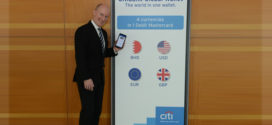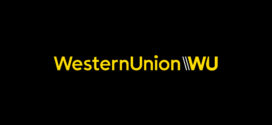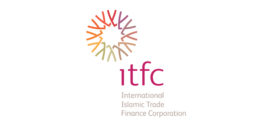Trade finance and corporate banking are on the up in Saudi Arabia thanks to strong, double-digit growth in both imports and exports in the Kingdom and continued positive intermediation by Saudi banks in the trade flows.
This is confirmed by Cash Management Matters (CMM), which as part of its aim to create transparency in the trade finance market-place in the KSA, has set out the results of its 2011 research in its TajaraMonitor publication.
Currently, the Tajara Monitor analyses the trade finance and corporate banking performance of the 12 Saudi banks that are licensed entities with the Saudi Arabian Monetary Agency (SAMA).
Trade finance and corporate banking closed 2011 on a very positive note. There was continued growth momentum in the trade flows with strong double digit growth in both imports and exports in 2011 over 2010. The trade flowgrowth was export led with an increase of 45% in exports over the previous year closing at an estimated SAR 1,367bn, above the prior recent peak in 2008 of SAR 1,175bn. Imports also performed strongly at SAR 493bn; up 23% on 2010 and also above the prior recent peak of 2008.KSA bank intermediation via letters of credit and guarantees in support of these trade flows continued apace. The level of guarantees grew by 11% and the level of letters of credit and acceptances grew by 18% over prior year.
Each of the key relevant performance measures for the 12 KSA banks posted growth from the previous year, as analysed in more detail in the full Tajara Monitor report.
• Corporate Assets + 8%
• Corporate Liabilities + 9%
• Corporate Operating Income + 5%
• Corporate Net operating income +40%
• Trade Contingent Liabilities +13%
• Trade Fees & Commissions + 14%
During continued global market uncertainty, corporate banking remained a prime business segment for banks within Saudi Arabia; when measured as a percentage of assets, liabilities, operating and net operating income. It is the Number One business segment for eight out of the 12 banks within the KSA ahead of retail, treasury and investment banking and brokerage.
Overall, for 2011, the corporate banking segment accounts for 38% of total assets at SAR 574bn; 41% of total liabilities at SAR 522b; 32% of total operating income at SAR 19bn; and a dramatically improved 38% of net income at SAR 12bn.
Trade finance continues to be a lead product for banks serving corporates as evidenced by the largely trade-related contingent liabilities that rose further to equate with 64% of corporate assets at year-end 2011 for the overall market. This trend reflects that there is a continuing increased commitment from banks to support the rising demand for trade even during these times of credit tightening. Seasoned bankers recognise that supporting a customer’s profitable trade business is a key to the financial and operating welfare of corporates in the short- to long-term.
Furthermore, it is significant to note that whilst total banks’ fees and commissions rose by 4% between 2008 and 2011, trade fees rose during the same period by 45%.
This year’s Tajara Monitor reveals that in 2011 Riyad Bank proved its staying power in trade finance and firmly held on to its lead position in the CMM Corporate Banking and Trade Finance League Table for the fourth consecutive year. Whilst it has been challenged by other banks in different years to different degrees, it has broadened the gap between itself and its closest competitor National Commercial Bank. In 2011 it lengthened its leadership position to comfortably in excess of 3 percentage points. At the top of the table apart from Riyad Bank, only the Saudi British Bank improved its relative market-share and league table ranking in 2011, when it swapped fourth for third position with Banque Saudi Fransi. Banque Saudi Fransi, like Samba, lost relative market-share in 2011.
In the middle of the table, Saudi Hollandi Bank and Arab National Bank both improved their market-shares and maintained their rankings, whilst Al Rajhi Bank lost market-share but maintained its ranking.
Lower down, the Saudi Investment Bank maintained its ranking but lost market share. Alinma Bank continued to improve its share building further on its impressive start and Bank Al Jazira reversed the negative trend in its share and ranking to take over from Bank AlBilad in eleventh position.
The collective performance of the Islamic banks improved once again with the progress of winners such as Bank AlJazira and Alinma Bank outweighing the attrition at Al RajhiBank and Bank AlBilad. Conventional banks are also increasing their focus on meeting the rising demand for Islamic corporate banking and trade facilities.
 Cash And Trade Magazine For Cash and Trade professionals in the Middle East
Cash And Trade Magazine For Cash and Trade professionals in the Middle East




